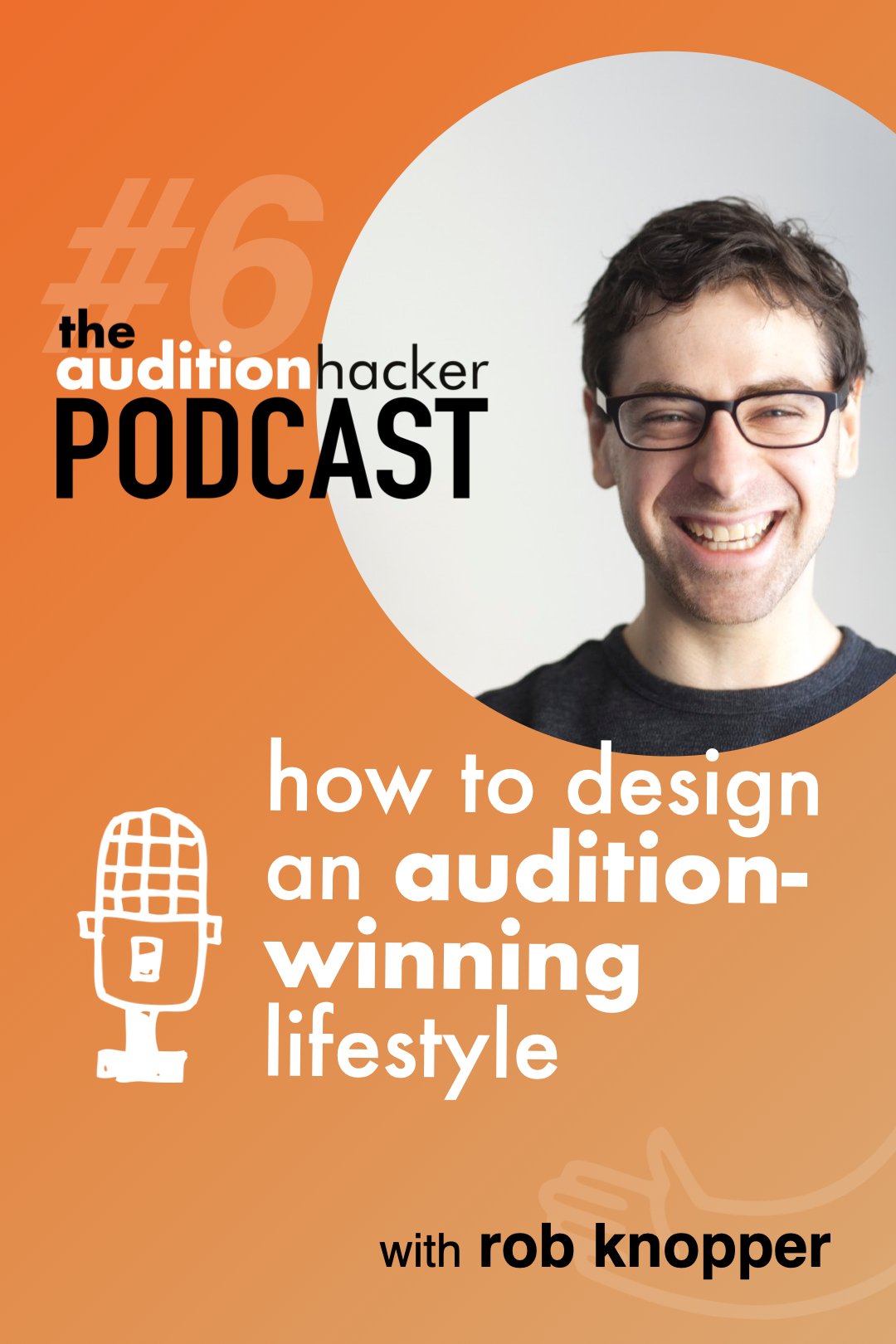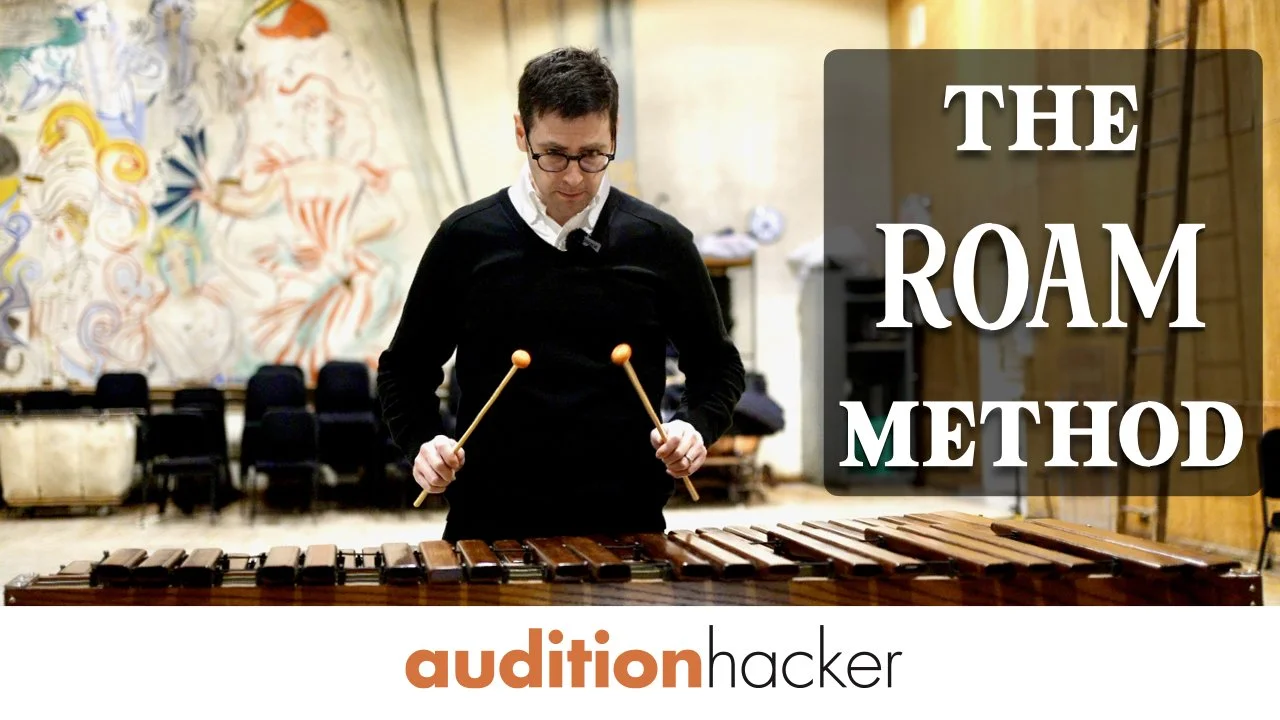"the list isn't coming out for 3 months. what should i work on now to prepare?"
good question.
looking back, one of the guiding forces behind my audition journey was the concept of continuous improvement.
whether or not i was actually practicing for an audition, i was never content unless i was doing something today that would make me a better player tomorrow.
the reason? well... probably anxiety. or fear of failure. or maybe, i don't know, boredom? mostly i just didn't want to end up working at a gas station. (not that there's anything wrong with that?)
living the audition lifestyle
regardless of whether you have an audition coming up, you should be doing things now that lead to a better audition later.
think about it. close your eyes and peer into the future for a minute. is the person who wins an audition 6 months away just sitting around doing nothing right now?
you're always either preparing for an audition OR you're taking proactive, productive steps that lead to you having a better audition later.
so. i want to nail this next audition.
what should i do now before the list is announced?
you want to position yourself for the best change at the next audition. specifically, you want to prepare right now so that as soon as the list comes out, you're far ahead of the rest of the pack of candidates. think of this as audition-extra-credit.
here's 6 things you can do right now to position yourself for the best chance at the next audition.
want a head start on audition preparation?
here's my 5-step guide to constructing your preparation process and optimizing it for maximum results.
1. make a ‘probably on the audition’ list.
if you haven’t received the list, then there’s no way that you can practice anything with complete certainty that it will be on the list.
come up with a list of excerpts that you think are most likely to be on the audition list.
if you don’t know or are having a hard time guessing what would most likely be on it, try to find old lists. or try to find similar lists.
for instance, if you know that a MET audition is coming up, try to find other opera audition lists or old MET audition lists.
compile that list of excerpts, always tweaking and tuning it when you come across more music that would likely be on the audition.
there's a risk here. whenever you don’t have the list yet, you’re likely going to end up working on something that might not pan out to actually be on the list. so you always have the risk of wasting time. the goal here is to come up with a list of things that realistically could appear on the audition. you'll have to accept the risk that you'll work on some things that might not be on the audition, because the reward will be that you've already learned stuff that is on the audition. it's worth it.
2. prepare the ‘probably on the audition’ list.
using that list, pretend it is the actual audition list. come up with a plan of how you would learn all those excerpts for that audition, beginning to end, and put that plan into action. the day the list comes out, you’re going to mostly like have to alter and rethink your plan based on the music they ask you to play. but, the number of things that you've accomplished are extremely useful. trust me.
if you accept the premise that audition preparation is a series of tasks, from the day you get your list until the day of the audition, then you’ve already completed at least a few of those tasks. that's huge. If you were smart about your ‘probably on the audition’ list, there’s going to be some rollover, and you can thank yourself for a nice head start.
3. do the ‘one excerpt’ audition.
take ONE excerpt and go through the entire process from scratch to audition-ready.
IF you accept the premise that audition preparation is task-based, then you're going to have a series of tasks that need to be done for each excerpt throughout the audition term. and if you have all those tasks, it's going to make sense to batch those tasks. meaning if you are going to go to the library and get recordings for all the excerpts, it doesn't make sense to go to the library each time you're starting to work on an excerpt. you go once and get all the recordings. same with other stuff: you get into a note-learning routine and learn all the notes in one segment of time. you self-recording in another segment. you study scores for a solid week.
at first, you don't know how long all these individual tasks take. and you don't necessarily even know your ideal series of tasks that go into learning an excerpt and bringing it up to audition-ready status.
since you don't have the list, this is the perfect time to figure out exactly what your checklist is for each excerpt.
my basic one is:
research
learn the notes
self-record the excerpt
what you can do now is choose one excerpt, go through the entire process of learning it, and documenting what happens. you'll end up with a checklist of tasks that work for you, and how much time each one takes. that's information you can use when the list comes to schedule all the tasks for the big list of excerpts for the audition.
you will have executed the audition preparation process for one excerpt, and when the full list is finally announced, that’s just one more step that will not be new. when you do get the list, you can just dive in and you already know the steps of what to do. hell yeah.
4. develop a warm-up
everyone has a warm-up. yours should sufficiently get you ready for playing excerpts in an audition. it should also cover the unique technical obstacles that you'll be facing according to the list you made (from item #1).
generally, each of your excerpts are going to have one specific challenge or “hard part.” every hard part is in that list for a reason; when orchestras choose excerpts, they choose them not only as an opportunity for you to show the audition panel that you can overcome technical hurdles, but also that you can also shape those complex or intricate passages into music.
yeah, music!
the earlier that you can work through as many technical hurdles and gain mastery or comfort level over those technical hurdles, the better.
go through that list and write down the difficult techniques in your wishlist of techniques…the ones you wish you were better at. take that list and turn it into a warm-up.
what warm-up would you do if you wanted to get comfortable with the experience of playing through those techniques? now is a great time to find or create exercises that will bring you closer to comfort on those techniques. and this warm-up can start by being relatively long. sometimes my warm-ups have been 90-120 minutes. eventually, as you get closer to the audition, it'll narrow down to 15 minutes or so. but for now you can have an extensive warm-up.
5. fill in the "fringe excerpt" research gaps.
we don’t know which excerpts are going to come, so why don’t you start filling in some of your research gaps?
perhaps a lot of excerpts on your instrument are ones you’ve played before or ones that you feel you’ve researched thoroughly and you know them. you don’t know what excerpts they’re going to ask for later, but are there common excerpts that you haven’t studied? are there excerpts that you can study right now knowing that it could put you in a better position for later? remember, it's all about trying to knock off tasks that would have been part of your audition preparation process but are already done by the time your list comes.
6. organize your old lesson notes (and music binder system).
ok, check this out. when i’m working on excerpts, part of my process is to record myself, listen back, and try to analyze everything that can be improved.
if you’re like me, you’ve gone through a long history of playing excerpts for people, either in lessons or mock auditions. and yes, if you listen back on a lesson you took two years ago, chances are you’ve made significant improvement since then.
there's a lot of stuff to worry about when you're self-recording, and you might miss something. or you might be working through a problem and have no idea what to do about it. your old lesson notes could give you just the clue that you're looking for.
if you look over all of the comments that you’ve ever received on that piece ever, you might have some breakthroughs and realizations. something that somebody said at some point COULD help you now. keep your eyes open for solutions that you forgot to apply at the time. they could be extra beneficial to you now.
go through all of your old lessons that you haven’t transcribed and transcribe them now.
once they're transcribed, organize them into items and a list of comments based on piece, general comments, individual measure comments, and have them all in one place.
organize that notebook, whether it’s paper or digital, in a way that helps you once you receive the list. (check out my previous blog where i explain exactly how i organize my music.)
alright guys, LET'S GO! no excuses.
what are some things that you do before you get the list? let's continue the conversation down in the comments.
oh - and - do you know someone who never practices unless there's an audition list out (but always complains that they did all they could)? click here to share this on facebook!
learn to dominate your audition preparation.
here's my 5-step guide to constructing your preparation process and optimizing it for maximum results.














it's episode #8 of the auditionhacker podcast, and i'll go over my best methods for getting better feedback.